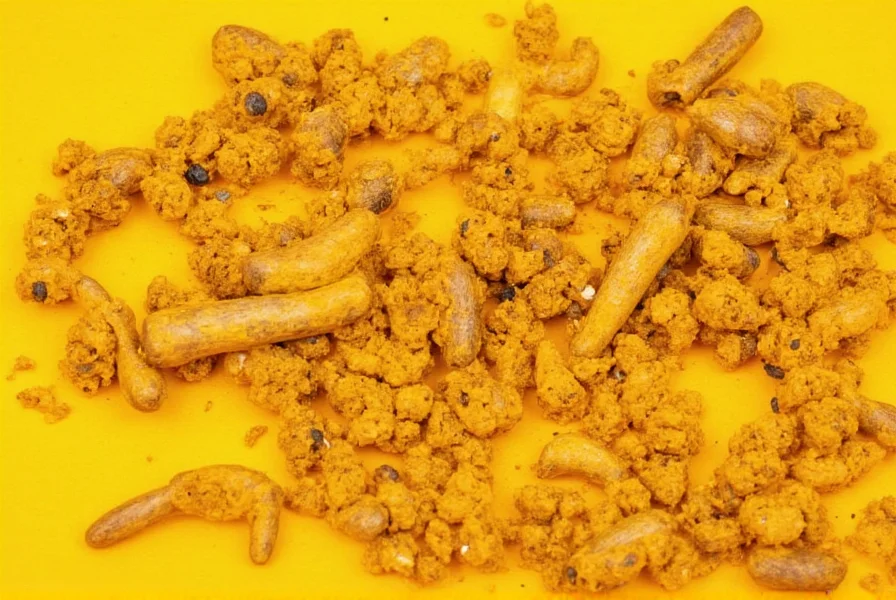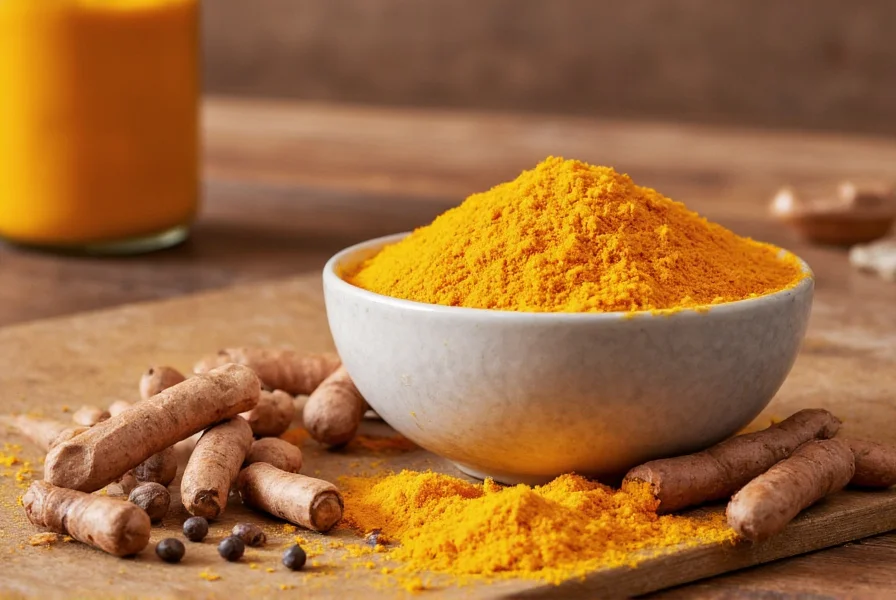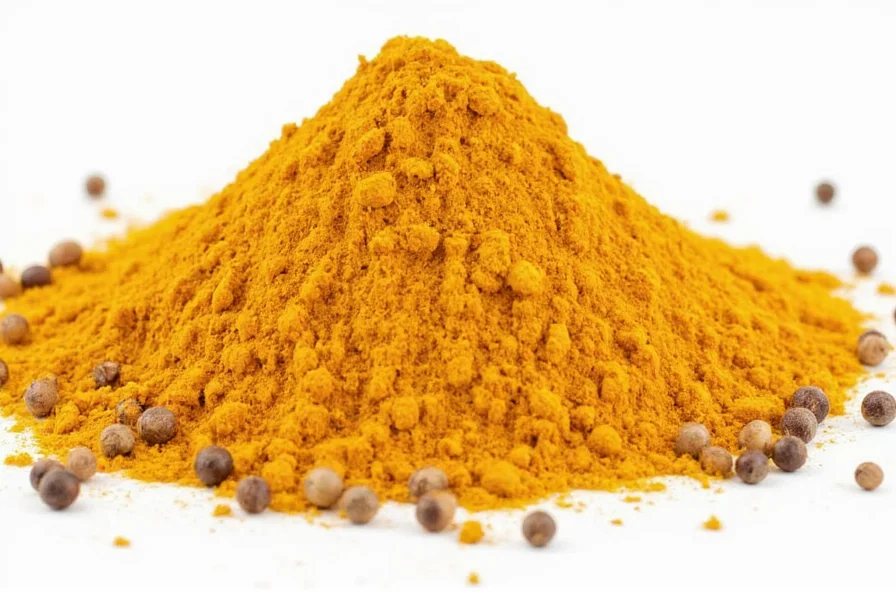For decades, traditional medicine systems have paired turmeric with black pepper, but modern science has now confirmed why this combination works so effectively. The synergy between these two common kitchen ingredients creates a powerful health-promoting duo that outperforms turmeric alone.
The Science Behind Turmeric and Black Pepper Absorption
Curcumin, the primary active compound in turmeric, has notoriously poor bioavailability on its own. When consumed without enhancement, most curcumin passes through the digestive system without being absorbed. This limitation significantly reduces its potential health benefits.
Black pepper contains piperine, a bioactive alkaloid that addresses this absorption challenge through several mechanisms:
- Inhibits glucuronidation in the liver and intestines, slowing curcumin metabolism
- Increases intestinal absorption of nutrients
- Enhances permeability of the intestinal wall
- Slows the rate at which curcumin is eliminated from the body
A landmark study published in Planta Medica demonstrated that combining 20mg of piperine with 2,000mg of curcumin increased curcumin bioavailability by an astonishing 2,000% in human subjects. This dramatic improvement transforms turmeric from a marginally effective supplement into a potent therapeutic agent.

Health Benefits of the Turmeric-Black Pepper Combination
When properly combined, turmeric and black pepper deliver enhanced health benefits compared to turmeric alone:
| Health Benefit | Scientific Evidence Level | Key Research Findings |
|---|---|---|
| Anti-inflammatory effects | Strong clinical evidence | Significantly reduces inflammatory markers like CRP and IL-6 |
| Joint health support | Multiple clinical trials | Improves pain and function in osteoarthritis patients |
| Antioxidant protection | Robust laboratory evidence | Enhanced free radical scavenging activity |
| Cognitive function | Emerging clinical evidence | Potential benefits for memory and brain health |
Practical Application: How to Combine Turmeric with Black Pepper
Understanding the science is valuable, but implementing it correctly matters most. Here's how to maximize the benefits of this powerful combination:
Optimal Ratios and Dosage
Research indicates that a small amount of black pepper significantly enhances curcumin absorption. The effective ratio demonstrated in studies is approximately:
- 1/4 teaspoon (approximately 1.5g) of ground black pepper per 1-2 teaspoons of turmeric
- For supplements: 5-20mg of piperine per 500mg of curcumin
Interestingly, you don't need large quantities of black pepper to achieve the absorption-boosting effect. Even small amounts (as little as 5mg of piperine) provide significant enhancement.
Best Consumption Methods
To maximize the benefits of turmeric with black pepper:
- Combine with healthy fats: Curcumin is fat-soluble, so consuming with coconut oil, olive oil, or avocado improves absorption
- Heat gently: Light cooking can increase curcumin solubility without degrading the compounds
- Include in liquid form: Golden milk or turmeric tea with black pepper provides excellent absorption
- Mix into dressings: Combine turmeric, black pepper, and olive oil for salad dressings

Safety Considerations and Potential Interactions
While turmeric and black pepper are generally safe as culinary ingredients, higher therapeutic doses require consideration:
- Medication interactions: Piperine may affect how certain medications are metabolized, particularly blood thinners, diabetes medications, and some chemotherapy drugs
- Digestive sensitivity: High doses may cause gastrointestinal discomfort in some individuals
- Pregnancy considerations: Consult healthcare providers before using therapeutic doses during pregnancy
- Gallbladder issues: May exacerbate gallbladder problems in susceptible individuals
As with any dietary change intended for therapeutic purposes, consulting with a healthcare provider familiar with your medical history is recommended, especially if you have underlying health conditions or take prescription medications.
Addressing Common Misconceptions
Several myths surround turmeric and black pepper. Let's clarify the facts:
- Myth: Any black pepper works equally well
Fact: Freshly ground black pepper contains higher piperine levels than pre-ground pepper - Myth: More black pepper means better absorption
Fact: Research shows minimal additional benefit beyond 20mg of piperine - Myth: Turmeric supplements without black pepper are useless
Fact: They still provide some benefits, just significantly reduced absorption - Myth: The combination works immediately for all conditions
Fact: Many benefits require consistent, long-term use to manifest
Conclusion
The combination of turmeric with black pepper represents a perfect example of traditional wisdom validated by modern science. By understanding the mechanism behind piperine's enhancement of curcumin bioavailability, we can optimize our consumption of this powerful natural remedy. Whether incorporated into daily cooking or taken as a supplement, this simple pairing dramatically increases the potential health benefits of turmeric's active compounds.
For those seeking to maximize the benefits of turmeric, adding a small amount of black pepper isn't just traditional advice—it's scientifically sound nutrition strategy that transforms how our bodies utilize this remarkable spice.
How much black pepper should I take with turmeric for optimal absorption?
Research shows that just 1/4 teaspoon (approximately 1.5g) of freshly ground black pepper per 1-2 teaspoons of turmeric provides optimal absorption enhancement. For supplements, 5-20mg of piperine per 500mg of curcumin is the effective range demonstrated in studies.
Can I use white pepper instead of black pepper with turmeric?
White pepper contains significantly less piperine than black pepper, making it less effective for enhancing curcumin absorption. Black pepper (Piper nigrum) is specifically recommended due to its higher piperine content, which is the compound responsible for the bioavailability boost.
How long does it take to notice benefits from turmeric with black pepper?
The timeframe varies depending on the health concern. Some people report reduced joint discomfort within 2-4 weeks of consistent daily use, while other benefits like improved cognitive function may take 8-12 weeks to become noticeable. Consistent, long-term use generally yields the best results.
Does the quality of turmeric matter when combining with black pepper?
Yes, turmeric quality significantly impacts results. Choose organic turmeric with verified curcumin content (typically 2-6%). Higher quality turmeric contains more active compounds to begin with, which the black pepper then helps your body absorb more effectively. Look for products with third-party testing for purity and potency.
Can I take turmeric with black pepper if I'm on blood thinners?
If you're taking blood-thinning medications like warfarin, consult your healthcare provider before using turmeric with black pepper regularly. Both turmeric and piperine can affect blood clotting, and piperine may alter how your body processes certain medications, potentially increasing their effects.











 浙公网安备
33010002000092号
浙公网安备
33010002000092号 浙B2-20120091-4
浙B2-20120091-4